2 year old sleep regression is basically like a mean trick. You seem to finally get your toddler sleeping (at least a little bit, right?!) and then they regress like they are a newborn baby who won’t sleep.
Each night you pray your toddler will fall asleep fast.
You try all the all the different things — co-sleeping, cry it out, give drinks of water, remove itchy socks, spray for monsters, scratch their back, read a book, keep your boundaries, relax your boundaries, sing 57 songs, and on and on.
It’s enough to drive you…insane.
There’s a reason they use sleep deprivation as a form of torture. It really does make you go crazy, and then you’re so dang tired, you just do whatever the torturer (aka 2 year old) says.
The frustration and exhaustion. Heck, the guilt for not being able to figure this toddler sleep thing out. You’d try just about any 2 year-old sleep schedule that promised to work.
Well…you’re in the right place. I’m here to give you quick strategies to handle any 2 or 3 year old sleep regression.
On This Page…
- What exactly is sleep regression?
- Top 10 sleep regression issues
- Separation anxiety
- Climbing out of crib or bed
- There's a new sibling
- Toddler wakes up too early
- What is up with cry it out?
- Naptime - to stay or go?
- Waking up a TON at night
- Fights bedtime or bedtime routine
- Brain development changes
- How long will this exhaustion last?
What exactly is sleep regression in 2 year olds?
Sleep regression is basically any time your toddler shifts their sleep patterns.
After previously sleeping well, for example, they may now have difficulty falling asleep, staying asleep during the night or waking up way too early (hello coffee!).
There are tons of reasons for the shift in sleep patterns, but here’s a quick run down of the more common ones:
- 2 year-old molars
- Developmental leap
- Increasing imagination capabilities
- Introduction of new sibling
- Starting daycare / preschool
- Decreasing sleep needs
- Potty training
- New toddler bed
- Separation anxiety
Let’s take a deeper dive into these issues and I’ll share some quick tips that will help you and your child start sleeping better tonight!
Top 10 toddler sleep regression issues and solutions.
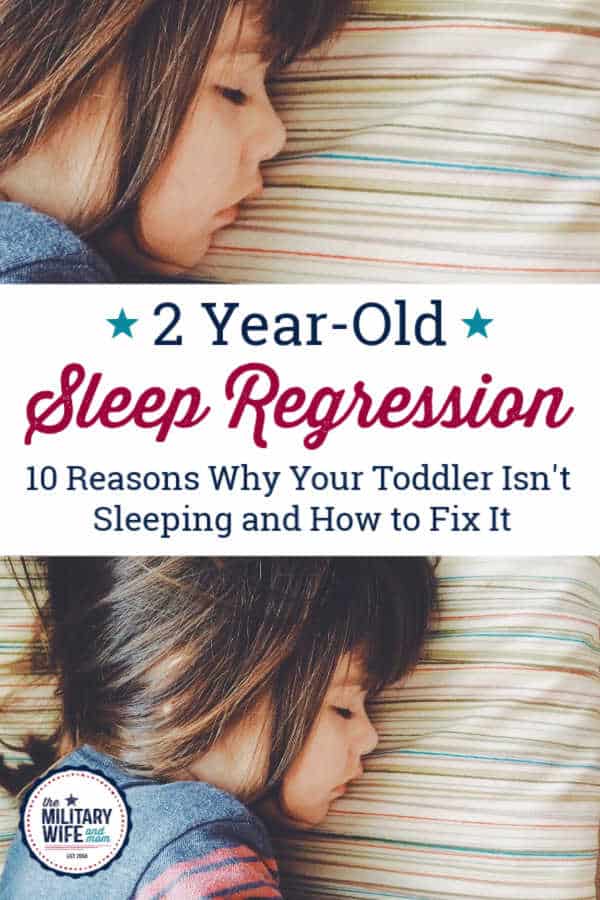
1. Separation anxiety and nightmares – how to calm and comfort your child
The wild imagination can be a big scary thing.
One of the big reasons for sleep regression at this age is fears and anxieties of going to sleep alone. It’s also very common for a child to say they are afraid to sleep alone because of a nightmare.
First, identify the underlying want. Being close to their parents is very important to 2 and 3 year olds; that right there is usually the underlying want.
Second, acknowledge it. The next step in dealing with fear and anxiety is to acknowledge it. Reflect back to the child exactly what might be going on in their head. “You’re afraid. You want me to stay with you. The shadows in the room bother you.” This will immediately help calm your child.
The reason you want to acknowledge it is because all kids will continue to communicate until they feel heard. So when you say to a 2 year old, “You’re not afraid. You’re not anxious. There’s nothing to be afraid of,” the child will continue to prove to you that they are right and that their nighttime fears are valid. They will start to escalate their separation anxiety at bedtime.
You are not agreeing with their sleep anxiety, but rather seeing things from your child’s perspective. By validating your child’s point of view, he or she will start to open up to your guidance (possible solutions within your boundaries).
Third, problem-solve together: Help your child problem-solve ways they can feel close to you even if you’re not there. There are a lot of different ways to do this.
Here are a few ideas to help get you started:
- Tell your child you’ll return to check on them. Let your child pick the number of minutes in which you’ll return. This puts your child in the lead, while you get to keep your boundary of bedtime. See more here: 3 strategies to try when your toddler keeps getting out of bed.
- Allow your child to sleep with a piece of your clothing.
- Allow your child to have a mom or dad doll made and sleep with it.
Honestly, all three of the above can work well in combo. Lastly with separation anxiety, avoid using sleep as a punishment, as this will only increase bedtime tantrums. (Avoid for example, “If you don’t do this, then you’re going to bed right now.”)
2. Teeth are disrupting your child’s sleep.
It’s very common to see the 2 year old molars blamed for all the 2 year old sleep regression happening in the world.
Wakes up 10x per night…teeth.
Refuses to go to bed…teeth.
Wakes up at 4:30 am ready to party…teeth.
But what if I told you, it’s likely not the root cause of your child’s sleep regression. And it’s more of a distraction that prevents you from discovering the real issue.
Here’s the scoop from a dentist:
“Two-year molars usually arrive sometime between 23 and 33 months. Typically, the lower set will arrive fist, around 23 to 31 months, with the upper set following closely after around 25 to 33 months. […] Remember, teething only lasts a few days and your child will be back to his or her happy, active self.” (source)
Your child’s teeth may cause sleep regression for a few days around those time periods. But if you are seeing sleep problems outside of that time period, it is safe to say, there are other causes to explore.
3. Climbing out of the crib causing sleep issues.
You’ve got a ninja on your hands, and at this age, most kids do not have the self-control to stay in a bed without a physical boundary (i.e. the crib) present. If you transition out of the crib too early, it can spell disaster. Avoid as long as possible.
However…If your child is repeatedly climbing out of the crib OR you’re already moved onto a toddler bed, then these are my best recommendations:
1. Depending on the crib design, you may be able to completely lower the mattress by removing the metal frame supporting it completely. The mattress would be flat on the floor, contained within the crib. You will need to look at this and make a safety judgment call (i.e. Will any part of your child’s body get pinched between the crib frame and the mattress?).
2. Put the mattress on the floor or use a big kid bed (a pool noodle under the sheet works just fine as a bed rail so they won’t fall out). Then move onto using the Excuse Me technique by doing a series of “checks” and returning after a certain number of minutes. Be sure to point out to your child how well he or she stayed in bed each time they do. Your child’s future actions are based upon how they see themselves. For example, if you say, “You never stay in bed,” your child sees themselves that way. If you say, “You stayed in bed until I came back. That took a lot of self-control. You handled that,” the child can start to see they are capable. Now you have something to work with and can build on it.
4. 2 year sleep regression after a new baby sibling.
“Put the baby back!” The toddler cries.
2 or 3 year old sleep regression happens ALL the time when a new baby sibling comes around. The toddler sees the baby getting all the attention. Everything that once belonged to the toddler (including you!) is now shared with the baby.
Immediately, your child can feel this underlying pull to connect with you at all times of the day and night. Hundreds of years ago, this was a survival for children — to cling to their parents when attention was diverted. If your child is waking up a lot or fighting bedtime after a new sibling comes along, it is 100% normal, and in many ways, developmentally healthy.
Now what can you do about 2 year old sleep regression with a new baby?
The first thing I would do is address this at non-sleeping times in the best way toddlers know how to communicate – through a playful game! Let your toddler pretend to be the baby and really play it up.
All behavior is communication and when you play like this with your toddler, you are showing them that you understand what they are going through and that they need this.
The other type of game that I recommend is a role reversal game where you’re the toddler who keeps getting out of bed, and your toddler is the parent telling you to “Go to sleep!” and “Get in bed!” Do this during the daytime and have fun with it. This eases the tension, and after the game, it’s a great time to chat about bedtime rules, routines and what you expect.
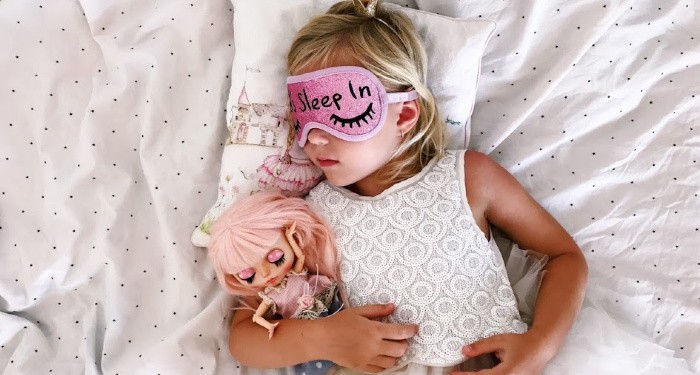
If you’re able to meet the need for connection through play during the day, fights at bedtime can start to decrease all on their own. You can even play this “baby game” right before bedtime to fill up their connection tank.
For more on managing the big changes that happen with a toddler and newborn, check out my post here: Top 7 Challenges for Parenting a Toddler and Newborn + Solutions.
For more of a step-by-step guide for playing the “baby game” with a toddler, check out my post here: How to Handle a Toddler Jealous of a Baby
5. Waking early in the morning.
Your kid is up earlier than roosters. Send coffee!
Kids love to wake up at the crack of dawn, don’t they?! With early morning waking, take a look at overall sleep and how that’s going before creating a reasonable toddler schedule.
Most toddlers need about 12-13 hours of sleep a day. Best bedtime and wake up times are 6-8 pm and 6-8 am, respectively.
Check out my guide here for a toddler waking up too early. You’ll find that for a while we were using a digital alarm clock with the minutes taped over. We now use this Stoplight Alarm Clock and remind both of our kids that they “need to stay in bed until green light.” It works really well because it’s an visual for kids to understand. Sometimes allowing the kids to play in their rooms in the am until “green light” is helpful enough to buy everyone in the family an extra hour of sleep.
We also removed all morning TV watching so help decrease the excitement of waking up to watch TV.
Related: 4 Year Old Sleep Schedules – Easy to Use With Examples
6. Should you cry it out?
The tinges of mom guilt.
Many parents reach the point where they either want to let their toddler cry it out or put a lock on the door. While we did do babywise with both our kids during the baby stage, most toddlers only escalate when attempting cry it out.
Plus, it can really start to break trust with your child. You’re essentially telling them “When you need me the most, I will push you away further.” Unheard upsets can start to build, and this is when you’ll see all sorts of misbehavior spill into other areas of life.
I highly recommend the Excuse me technique as I mentioned above. We’ve experienced success with it, and many parents I worked with have as well.
7. Nap time struggles – Refuses to nap or naps too long.
All you want is a nap, mama. Why doesn’t your toddler?
Looking at your overall toddler schedule, you can evaluate whether your toddler still needs to nap. I’d say, all kids need to nap until at least age 3. There may be some days where your 2 year old doesn’t nap, but for the most part, they need a brain break during the day.
Overtired kids will have a MUCH hard time falling asleep at bedtime. You may relate to a time you caught your second wind and then had a hard time falling asleep at night – hours past your typical bedtime.

If your 2 year old is napping and is having a very hard time falling asleep at bedtime, look at how long your child is napping. Overall set a goal for your 2-3 year old to get 12-13 hours of sleep in a 24 hour period of time.
For example, if your child goes to bed at 8 pm and wakes at 6 am, then a 2 hour nap during the day should be okay.
However, if your child goes to bed at 7 pm and wakes at 7 am, you may need to make sure the daytime nap is only about 1 hour, max.
If your child is not wanting to nap, don’t skip it. Allow your child to have rest time or quiet time instead to recharge from overstimulation. Here’s my how to guide for starting quiet time with toddlers.
8. Waking up a lot at night is now a habit.
Your 2 year-old wants to party like a rockstar!
This is a much harder challenge to work through during 2 year old sleep regression because most parents don’t have the patience to deal with hours of night waking AND most toddlers don’t have the self-control to resist getting up at night if there is an unmet need.
Before doing anything, do a quick check and ask yourself, “Is my child too hot, too cold, sick, hungry or in pain?” Address those first. You can also look at overall diet, and ask yourself, “Is my child getting what they need nutritionally and are they getting too many sugars, food additives, processed foods that can disrupt sleep?”
Related: 7 Foods That Support Better Behavior in Kids – According to Science
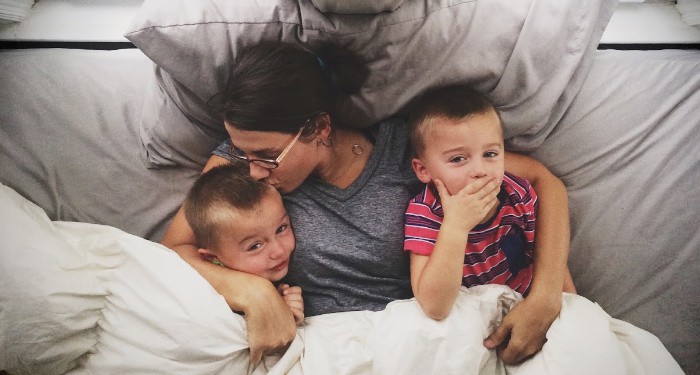
If all that is ruled out, you basically have three options:
- Some parents put a crib mattress on the floor in their bedroom and when the child wakes up at night, they sleep on the floor.
- Some parents get a bigger bed in the child’s room and may sleep in there when needed.
- Other parents will take the child back to bed every time and every night until the child stops trying to sleep with the parents. Offering to check on the child in 10 minutes is sometimes all the reassurance a toddler needs to drift back to sleep.
9. Fights bedtime or bedtime routine.
Bedtime feels more like an FBI hostage negotiation. Where are the warm fuzzies?
When kids fight bedtime or use stalling tactics, it usually comes down to two unmet needs: power and connection. If kids feel like they are being told what to do all day, and there’s a lack of connection, it will absolutely show up at bedtime. You’ll feel it, and the kids will feel it.
Having a good routine that is easy for toddlers to follow along with can bring a lot of reassurance. We’ve used visual routine cards for years and they work fantastic at bedtime.
It also helps to put your toddler in the lead, which meets the child’s need for power. If you’re following along with your child, coaching them through it, this will meet the need for connection.
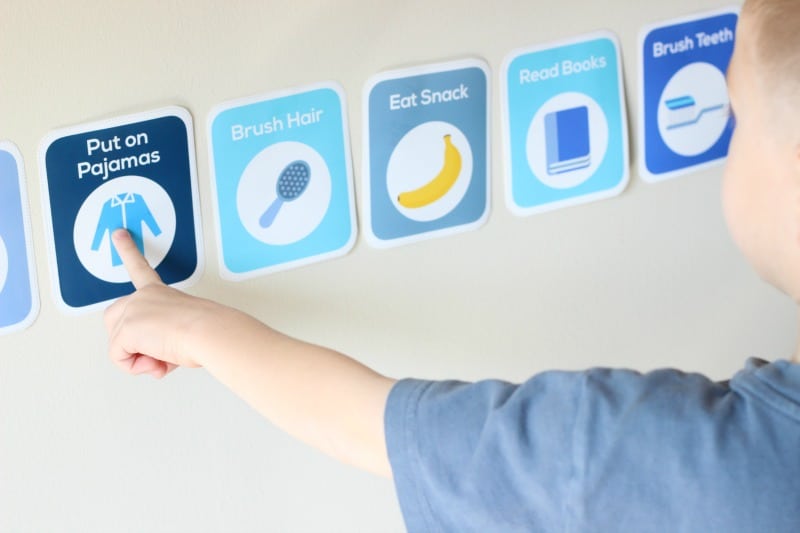
10. Brain development changes.
Each time your 2 year old doesn’t listen, it’s easy to forget that from age birth to three, your child’s brain produces 700 new neural connections every second.
When you have a 2 year sleep regression, a large underlying cause can be developmental milestones occurring in the brain.
(These are also called: mental leaps or cognitive leaps.)
Which means, your 2-year-old is having illogical and impulsive thoughts driven by emotion, especially when they are feeling tired at bedtime and during the night.
Here’s the good news:
This sleep disruption will pass. Once the new skill is organized and the growth spurt has ended equilibrium will return. Keep your sleep routines and rules consistent during this time, and your toddler should get back to sleeping well in 1-3 weeks.
For more on how to handle developmental leaps, read this: The Science of Development in the First Two Years.
11. At 2 years of age, kids test boundaries.
As a simple example, you’ll see this when you try to make a strong-willed toddler lay in bed and they won’t stay. You put the child back in bed, and they fight you and try to get out again and again – and again.
You’ll also see this with older kids when you lay out a boundary – like taking away a tablet – and the child goes to any measure to defy you and sneak the tablet when you’re not looking.
For help with setting boundaries with your toddler:
- Dealing With Controlling Kids? The “Secret Sauce” for Gaining Cooperation
- The BIG Reason Why Setting Limits With Your Strong Willed Child Isn’t Working
- Your Strong-Willed Toddler: 3 Shifts to Turn Defiance Into Cooperation
How long will sleep regression last?
This is the Golden Question, and you likely know that it really depends on your unique situation.
Here are some important points to remember:
- Sleep regression should – at most – last for weeks, not months or years. If it’s dragging on and on, it is time to talk with your pediatrician. Chronic sleep deprivation is not healthy for anyone.
- Continue to explore root causes. There is always a reason why kids do what they do. Stay curious and objective.
- Overall, helping everyone in the family get enough sleep is far more important than following any rule from a book. Don’t be afraid to try new things.
- Listen to what your instincts are telling you. You know your child best.
Print this free toddler listening checklist.
This post comes with a free printable checklist to help with toddler listening. I always have the hardest time remembering these phrases. This printable simplifies it!
Here is a sneak preview…
Download Your Free Printable
- Download the checklist. You’ll get the printable, plus join 37,000+ parents who receive my weekly parenting tips and ideas!
- Print. Any paper will do the trick, but card stock
would be ideal.
- Place it on your refrigerator. Check things off as you go and don’t forget a thing!
Want more on parenting?
- How to Build Cooperation, Independence and Listening Using a Printable Daily Schedule for Kids
- Frustrated with Disciplining Your Toddler? Try These Ideas!
- Your Strong-Willed Toddler: 3 Shifts That Turn Defiance Into Cooperation
- The Big Reason Why Setting Limits With Your Strong Willed Child Isn’t Working
- More 1 Year Old Sleep Schedules From Parents
Keeping your toddler engaged during the day:
I've created a free email series just for you! If you are struggling with finding a routine, rhythm or schedule, this email series will help you find one that will work for YOUR family. Yes, really. I've seen my sample routines work time and time again for parents. I know it can work for you too.
This free email series will help you:
- Free sample routines for your child
- Best morning routine tips and tricks your kids will actually follow
- All-time favorite parenting hacks for getting more cooperation at bedtime
- Step-by-step guide for using a printable daily schedule with kids

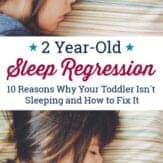








Hi my toddler won’t sleep in the afternoon he just plays in his cot but then a little monkey by 3pm very tired what do I do
Hi I’m looking for advice to keep my 2yr old who turned 2 august 2nd in his crib w the toddler rail on it. We transitioned him a couple weeks before we went to Flo then we bought a pack n play w us and needless to say he wouldn’t sleep in it so he slept in bed w us. We get home and first 4 days he sleeps and naps in there then the night before thanksgiving he would not stay in bed. He gets out of bed a couple times before he falls asleep and at first I had to be in his room for him to fall asleep now I’m outside the door with the door open and he’s waking 2-3 times a night. He used to be such a good sleeper and sleep through the night. It wouldn’t be so bad if I could get him sleeping through the night again. I’m also 37 weeks pregnant and I’m exhausted I dunno if that has tole on it like he’s regressing bc new sibling is arriving soon or if it’s a sleep regression or his 2 yr old molars but I need some kind of advice/help. Thank you for your time 🙏🏻
My 2.5 year old doesn’t want to go to bed all of sudden. She runs out of her room. She cry’s and yells every time we say it’s bed time. All she says is “I don’t want it”. She shares rooms with her one year old sister.
I’m am 30 weeks pg I’m sure that has something to do with it.
Help me!!! 🙏🏻
My youngest daughter will be 2 in about a month. She has shared a bedroom with her older sister for quite some time and loved going to bed. At 8 pm every night she’s ready for bed and we have no issues at all. We recently moved and now my girls have separate rooms. My toddler did fine for about 3 weeks in her own room but all of a sudden she will not sleep in her crib. As soon as I tell her it’s time for bed and take her to her crib she starts crying and grabbing onto me. She will climb out of her crib and bang her head on the door and scream till I open the door. As soon as I pick her up she’s fine and as long as she’s laying with me she will sleep. I don’t know what to do. My oldest daughter did not go through this and my toddler is just starting this. Please help me!!!
You’re tips have been making my life easier since I’m trying to deal with my almost 2 year old, waking up multiple times at night. Than you so so much ❤️
God bless you! These tips have worked great with my 2.5 yr old son going through a sleep regression. So glad I found your website, you’re a wonderful resource.